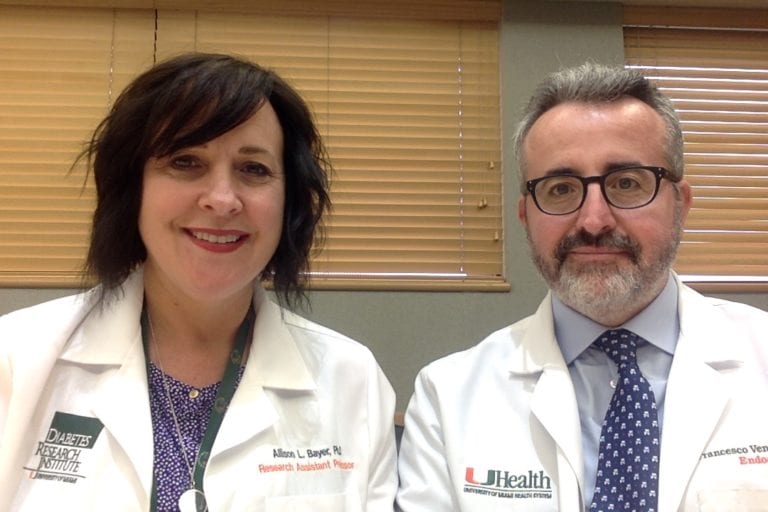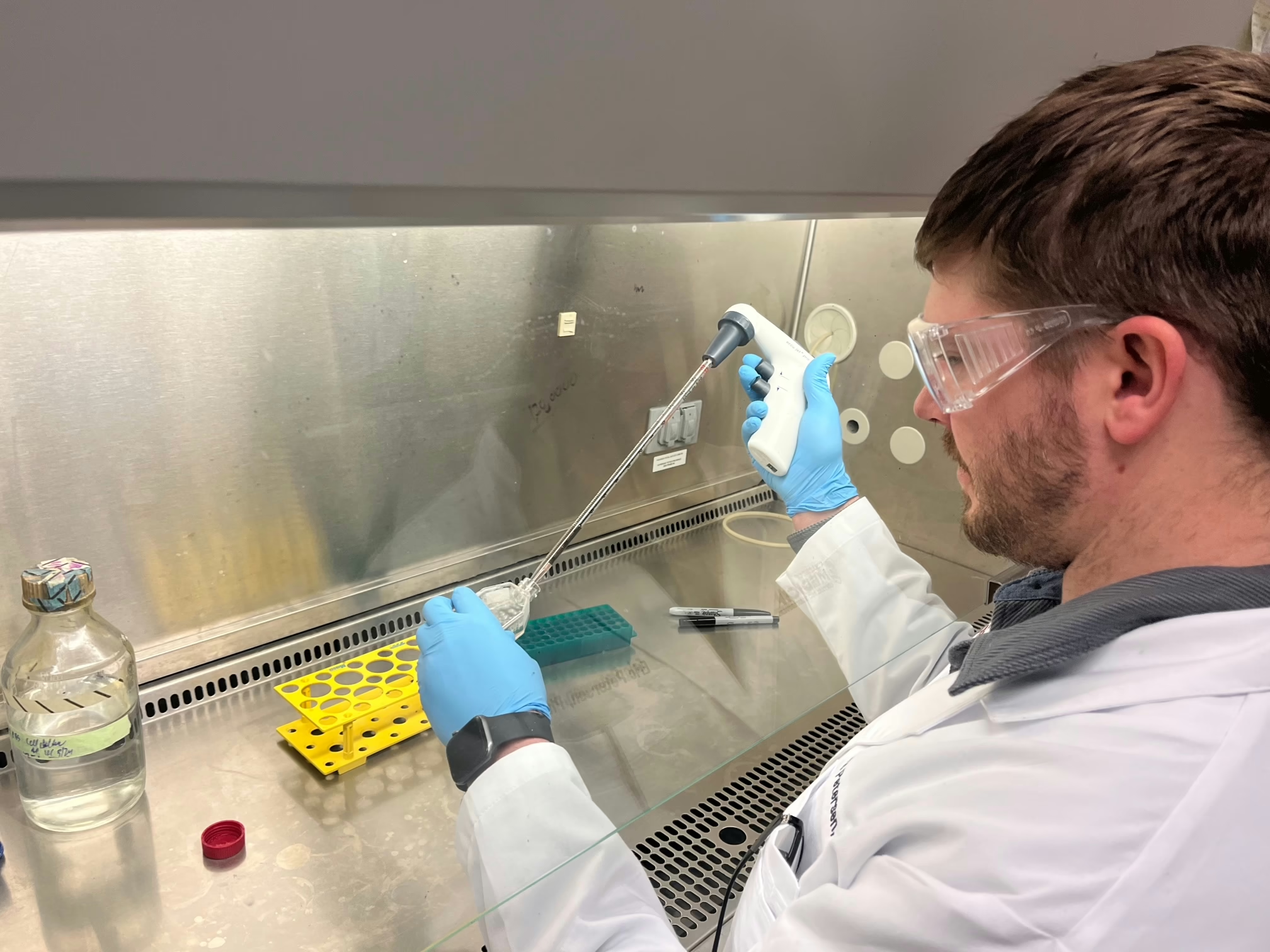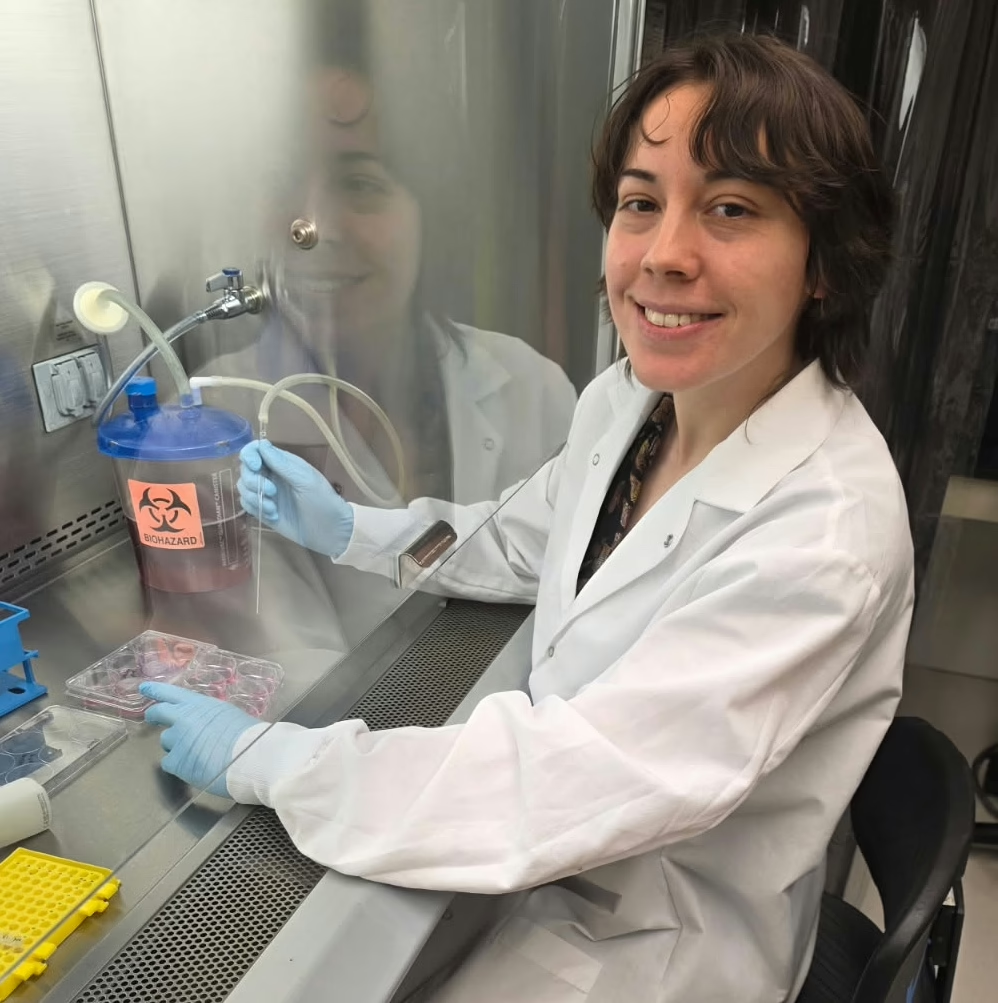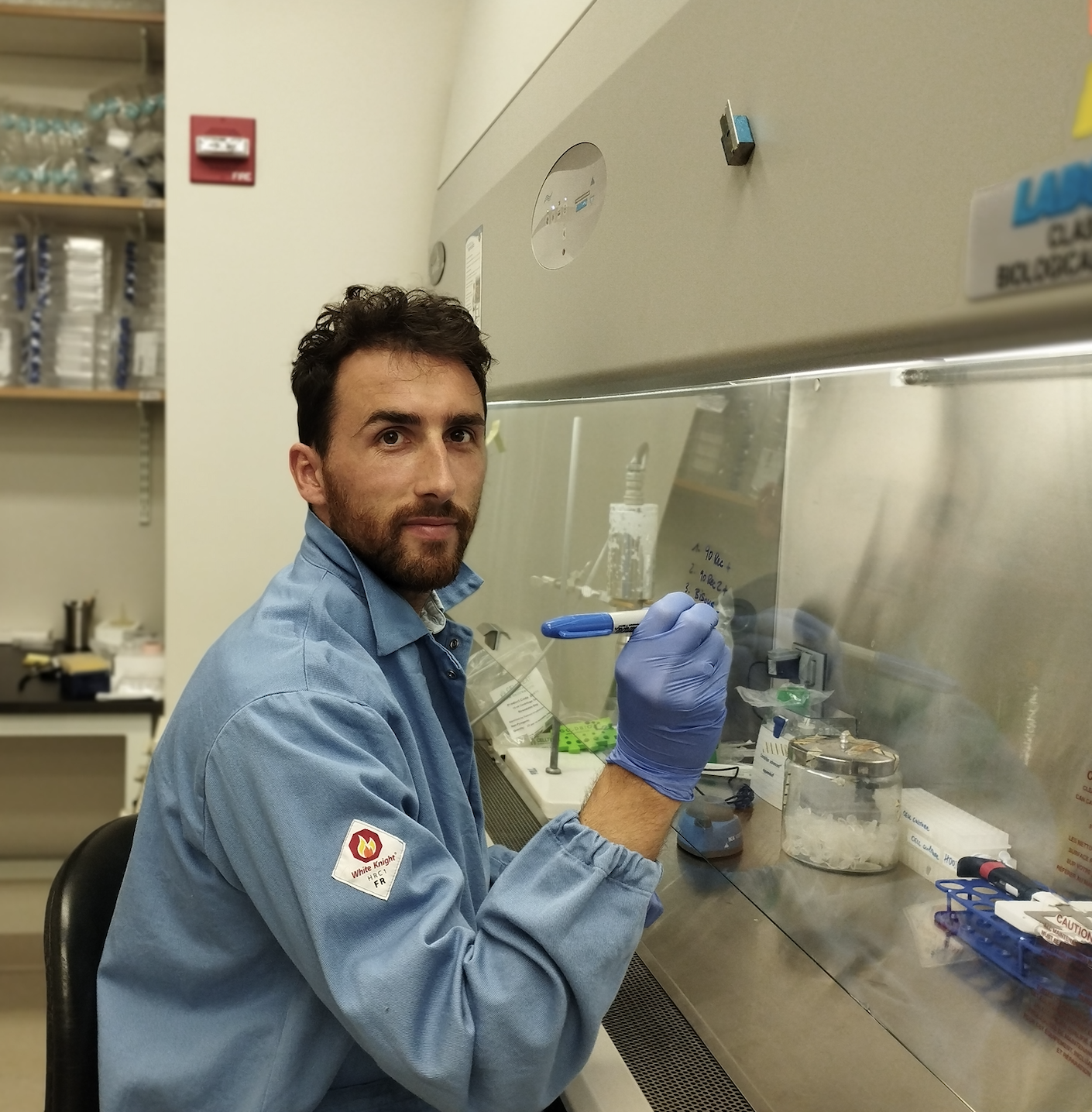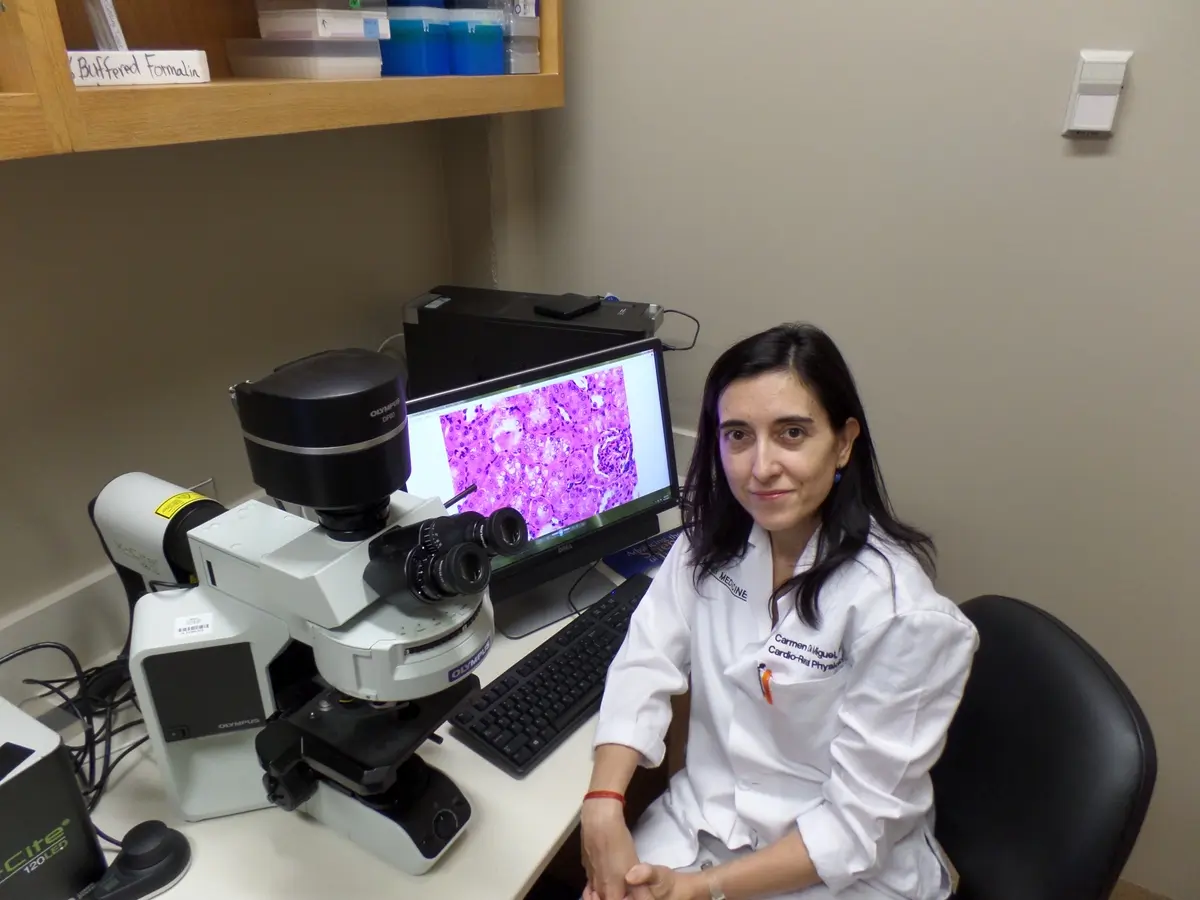Final Project Update
Type 1 diabetes (T1D) in an autoimmune disease where the body’s own immune system mistakenly destroys the insulin-producing cells in the pancreas [1]. Therapies targeting this immune response have demonstrated some efficacy, but these outcomes are not generally sustained [2]. New strategies able to create more lasting effects are therefore needed. To this end we proposed to investigate whether dimethyl fumarate (DMF) can be used as a novel therapeutic agent for T1D. DMF is an FDA approved medication for the treatment of another autoimmune disease called relapsing remitting multiple sclerosis [3]. Data in the animal model of multiple sclerosis and humans have shown that DMF significantly improves clinical outcomes by targeting the immune response through mechanisms which supports the rationale of testing DMF in T1D [4]. Thus, the aim of this proposal is to conduct preclinical investigations in the NOD mouse model, a widely accepted model of T1D, to test whether DMF can antagonize autoimmunity in the early stages of the disease.
Our results show that 12-weeks DMF treatment starting in 10-weeks-old NOD mice prevents diabetes onset and that this associated with a preservation of glucose tolerance (Fig 1A, B). Importantly the protective effect of DMF on diabetes prevention is long lasting and persists despite stopping treatment (Fig 1A). Investigations aimed at the understanding the mechanisms involved in DMF protection show that DMF inhibits the secretion of pro-inflammatory cytokines in immune cell subset such as CD4, CD8 and NK cells. In particular, in treated mice DMF is able to modulate autoimmunity by reducing the production of the pro-inflammatory cytokine IFN- γ compared to mice that did not receive DMF (Fig 1C).
Click HERE to view the full project update.
6-Month Project Update
Type 1 diabetes (T1D) is an autoimmune disease where the body’s immune system mistakenly destroys the insulin-producing cells in the pancreas. Therapies targeting this immune response have demonstrated some efficacy, but these outcomes are not generally sustained. New strategies able to create more lasting effects are therefore needed. To this end, we proposed to investigate whether dimethyl fumarate (DMF) can be used as a novel therapeutic agent for T1D. The FDA recently approved DMF for the treatment of another autoimmune disease called relapsing-remitting multiple sclerosis. Data in the animal model of multiple sclerosis and humans have shown that DMF significantly improves clinical outcomes by targeting the immune response through mechanisms that supports the rationale of testing DMF in T1D. Thus, this proposal aims to conduct preclinical investigations in the NOD mouse model, a widely accepted model of T1D, to test whether DMF can antagonize autoimmunity in the early stages of the disease. Due to the COVID-19 pandemic, we were delayed in starting the project. However ongoing experiments show that after 6-7 weeks of treatment none of NOD mice treated with DMF by oral administration developed diabetes compared to 24% of control mice, which did not receive DMF. Mice treated with DMF also showed a reduction in the expression of activation markers associated with immune activation, a reduction in the secretion of molecules associated with the inflammation observed in T1D, and a decrease in immune cells’ metabolism.
Further experiments aimed at better understanding the mechanisms underlying such process are also ongoing. We expect to complete mice treatment in the first weeks of January 2021 and then monitor the mice off the drug for 12 weeks. Such preliminary results support for the protective role of DMF in T1D.
Project Description
Type 1 diabetes (T1D) is an autoimmune disease where the body’s own immune system mistakenly destroys the insulin-producing beta cells in the pancreas. Therapies targeting this immune response have demonstrated some efficacy in preserving the secretion of insulin, but these outcomes are not generally sustained. New strategies able to create more lasting effects are therefore needed. We propose to investigate whether dimethyl fumarate (DMF) can be used as a novel therapeutic agent to prevent T1D.
DMF was recently approved by the FDA for the treatment of another autoimmune disease called relapsing-remitting multiple sclerosis. Data in the animal model of multiple sclerosis and humans have shown that DMF significantly improves clinical outcomes by targeting the immune response through several mechanisms which include the inhibition of certain aspects of cell metabolism.
Our long-term goal is to launch a clinical trial to test whether DMF preserves insulin secretion in T1D patients. As a pre-requisite to a clinical trial, we must have supportive preclinical data that demonstrates DMF’s efficacy in a disease-relevant model. We propose to conduct pre-clinical investigations in the NOD mouse model, a widely accepted model of T1D, to test whether DMF can prevent the autoimmune attack on the beta cells. This study is relevant since DMF has not been tested in T1D and yet it appears to possess many desirable properties. The proposed project represents a novel approach in treating the disease through a mechanism of action that includes metabolic inhibition and immune modulation.
The traditional drug development is a time-consuming, high-investment, and high-risk process. In this project, we will explore the possibility of repositioning an existing medication, which is already able to target autoimmunity. This study also represents a tremendous opportunity for accelerating the discovery of a new therapy for T1D.
Without Step 1 there cannot be a Step 2 or most importantly the last Step!

